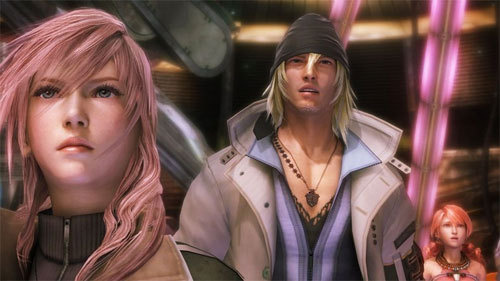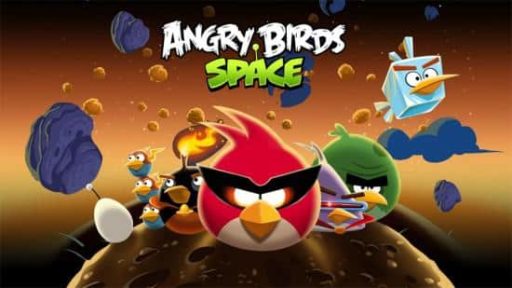The game-loving popular site Kotaku.com have published a review of Final Fantasy XIII, the hottest RPG currently on the market. Read on to find out what the experts think of the games pluses and minuses.
Hovering above the surface of the planet Pulse, the shell-like city of Cocoon was once a haven for humanity, but fear of powerful ancient beings known as the fal’Cie has stirred fear and unrest among the people, causing the military to respond by “quarantining” anyone who comes in contact with fal’Cie. It’s during these tumultuous times that our heroes – Snow, Lightning, Sazh, Hope, Fang, and Vanille – find themselves on the wrong side of the human-fal’Cie conflict, united by a task that could mean the end of the world as they know it.
It’s a familiar tale, but Square Enix wouldn’t fall back on common convention for its first true multi-platform Final Fantasy, would they?
Loved
A Beautiful Dream: By now you’ve seen the screenshots and videos, so I don’t have to tell you that Final Fantasy XIII is a beautiful game. The world of Pulse pulses with life, from its dankest dungeon to its expansive plains. Characters move with a fluidity and grace that even extends to their mouths, as Square Enix made sure the lip-sync in the English version matched the dialogue, rather than trying to rewrite the dialogue to match mouth movement from the Japanese version, as is common practice. Let’s face it, Square Enix isn’t going to release a true, numbered Final Fantasy game without making sure it looks as spectacular as it can. Mission accomplished.
A Tale As Old As Time: Viewing it broadly, Final Fantasy XIII’s story is about a group of heroes trying to save the world from destruction, which is nothing new, especially to fans of the series. It’s the strong themes woven into this tale of heroism than make the story special this time around. FFXIII is all about the power of choice, and how human beings have the power to make their own decisions, no matter how desperate and hopeless the situation may seem. Fighting against fate isn’t a new concept in the role-playing genre, but Final Fantasy XIII does it with a level of polish and proficiency that makes it stand out from all the rest. At times you’ll feel just as hopeless as the characters you control. Luckily this is counter-balanced by the elation you feel when they finally overcome the overwhelming obstacles placed before them.
Role Call: The cast of Final Fantasy XIII started off as an assemblage of typical RPG character templates, but as the story progresses each member of my party underwent a change in character, be it subtle of profound, that won me over to their side. At the beginning of the game, the do-rag sporting Snow is your average, overconfident RPG hero, boisterous and boasting. By the time I reached the end credits, he was much the same, but the experiences I had with him during the course of the game changed my reactions to him, so it was less, “man, what a jerk,” and more “oh, there he goes again, the little scamp.” Even Hope, one of the whiniest characters I’ve ever encountered in a video game, manages to redeem himself in my eyes. My only real issue with the cast was the voice of Vanille. I always considered the Australian accent to be a little bit sexy, until Vanille opened her big mouth. Sorry, Georgia van Cuylenburg.
A New Battle Paradigm: After being terribly disappointed by Final Fantasy XII’s battle system for taking the control of the characters away from me, I fully expected to be similarly disappointed in XIII, which once again sees the player issuing orders through one of the three active party members. Consider me pleasantly surprised. Each character in your party has multiple roles they can fill. Snow, for instance, can be a protective Guardian, a magic-hurling Ravager, or a fierce, fist-fighting Commando (at least initially). Once you form a party of three members, you have six slots to create Paradigms, which are particular groupings of your three characters different roles, which you can switch between during battle on the fly. For example, when a boss battle starts, you might have a Guardian drawing damage, a Medic healing, and a Synergist casting beneficial spells on the party. Once you’re buffed, you can switch to a trio of damaging roles in order to bring the hurt.
During early chapters, the system was nearly completely unnecessary. Towards the end of the game it was indispensable. Rather than rely of a complicated series of instructions to act upon, as in FFXII, your party members rely on you to scan the creatures you fight, adjusting automatically to your enemy’s strength and weaknesses. It’s like playing an MMO with two other people who know exactly what you need at any given time. I found it immensely satisfying.
Summoning Your Inner Strength: It wouldn’t be a Final Fantasy game without summoning spells, and XIII’s are more impressive than ever. I say this as a Transformers fan, so take that how you will. Each character eventually winds up with their own powerful Eidolon, which can be summoned to fight beside you in battle and then triggered to change into a vehicle, unleashing devastating attacks on your foes. XIII’s Eidolons are unique for more than their transformations, however. First, winning them to your side consists of some of the toughest encounters the game has to offer, requiring you to poke and prod until you discover each Eidolon’s weakness. Secondly, the relationship between the Eidolons and their human counterparts is much more intimate this time around. Without giving too much of the story away, the Eidolons are basically the giant, powerful embodiment of the game’s theme of personal choice. It’s a very clever design, which certainly wasn’t lost on me.
The Music Of The Crystals: I really want to hug Masashi Hamauzu. The composer behind the soundtrack of Final Fantasy X and Dirge of Cerberus outdid himself this time, creating one of the most eclectic yet satisfying video game soundtracks I’ve had the pleasure loudly curse over. He covers all of the bases, from blues to jazz to techno. My one issue with his score? You do not add lyrics to the Chocobo theme. That’s our job. For years I’ve been adding my own lyrics, and I won’t be told what to sing while I’m riding a big yellow bird, even if it’s from a composer so obviously talented.
Hated
Equipment And Economy: Primitive as it may be, I miss the old RPG convention of visiting a new town, buying upgraded equipment, and then moving on. Give me a few slots to add special attacks to my weapons, and that’s as complicated as I need it. Instead, Final Fantasy XIII presents me with a weapon and item leveling up system, in which I use bits and pieces found in chests, looted from enemies, or purchased from stores to raise the experience level of my weapons and accessories. It’s not a bad idea, per se, but the execution is definitely lacking something. It takes a lot of items to raise your equipment’s levels, to the point where it almost doesn’t make sense to raise the experience of anything other than the character’s weapons and a few select accessories. I wound up spending my entire game using the second weapon I acquired for each character, leveling them up to max and leaving them there. I never acquired a weapon that the game’s auto-equip felt was more powerful than that.
So instead, I found myself selling weapons for Gil (Final Fantasy money), which seemed to be in incredibly short supply. Very few creatures in the game drop actual money, so I earned the majority of my spending cash selling weapons found later in the game, in order to afford the phoenix downs (resurrection items) I needed to make it through.
The Sudden Grind: You may have heard complaints about the linear nature of Final Fantasy XIII, but after the first few chapters it starts to grow on you. It grew on me so much, that towards the latter part of the game, when Square Enix dumps you out on a giant, rolling expanse and tells you to go have fun doing quests randomly scattered about, I felt lost. It didn’t help that until just before that point, the game was relatively easy. The game doesn’t so much have a difficulty curve as it does a difficulty brick wall that you’ll slowly climb by sending your party to die against powerful monsters again and again until you finally start living again. The final level of the game was absolutely brutal.
I Miss Towns: It’s a personal preference, and not really a fault of the game, but I miss stopping at a new town between long stretches of fighting, talking with the locals, hanging out at the inn for a bit, checking out the shops, and generally resting up at a safe haven where you don’t have to worry about a battle around every corner. And while I am on the subject, placing a save point / store every five feet doesn’t make up for that. I have more than 50 save games, and I never saved at the same spot twice.
Square Enix has been continuously evolving the Final Fantasy series since before Square Enix existed. Since the release of Final Fantasy XI, also known as Final Fantasy Online, I’ve found myself rejecting that evolution. I didn’t want an online Final Fantasy, and I certainly didn’t want the strange mix of turn-based and action role-playing game I was handed in Final Fantasy XII. For a while there I even pondered the fact that maybe this was a natural progression, and I had simply outgrown the series. It just wasn’t for me anymore.
I wouldn’t say that Final Fantasy XIII has completely renewed my faith in the series, but it has shown me that Square Enix’s experimentation with the classic role-playing conventions I had come to expect from the Final Fantasy can produce something fresh, new, and highly enjoyable. The company may have made a few missteps in terms of pacing, and they continue to try out new equipment systems that are far more complicated than they need to be (see The Last Remnant), but as a whole, Final Fantasy XIII is step in the right direction for the fabled franchise.




Pingback: http://%/bvwweet4
Pingback: Private Servers